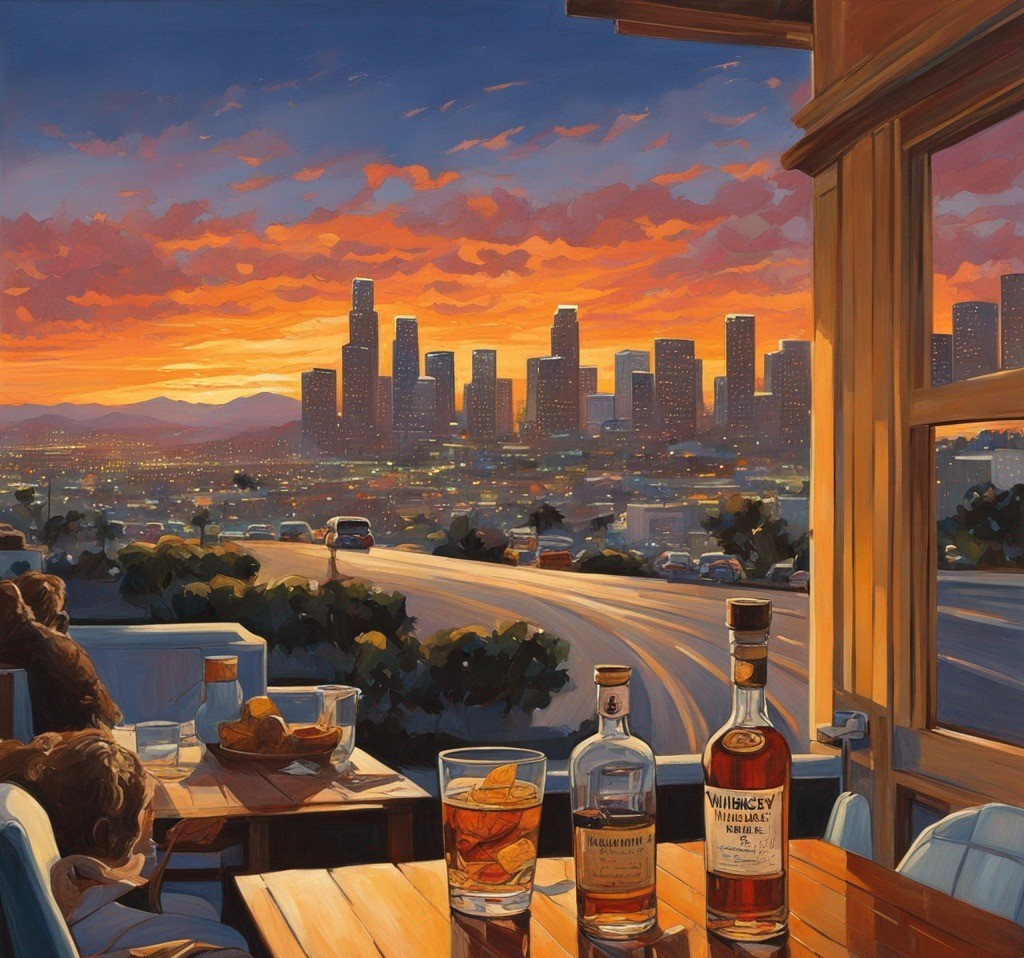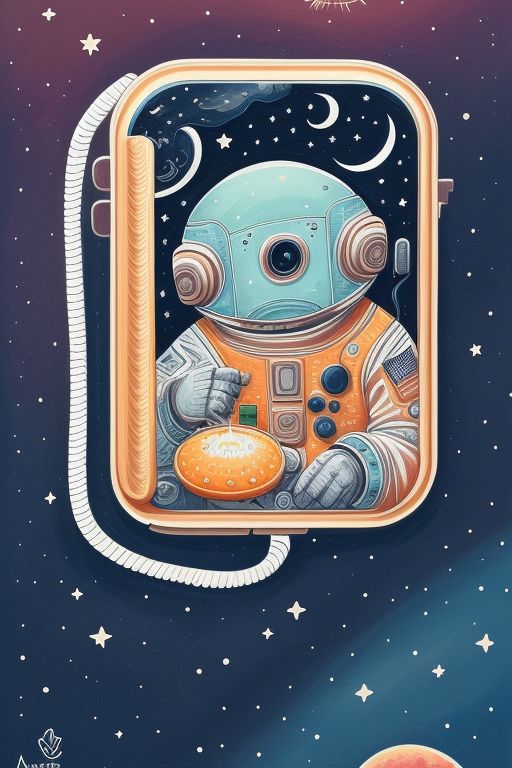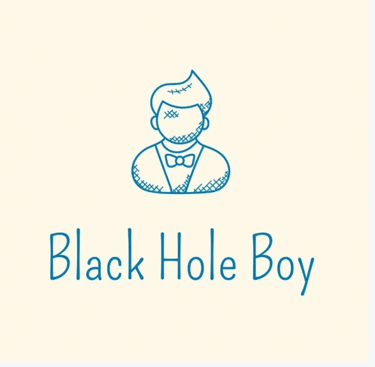Whiskey at Twilight: Finding Clarity in the City of Dreams
Some conversations are meant for darkness, some confessions require the gentle boundary between day and night, some thoughts only crystallize when framed against a skyline slowly coming alive with light.
ART
5/1/20259 min read


"The thing about Los Angeles," David said, pouring another finger of whiskey into each of our glasses, "is that it's the only city I know that looks more honest at night than during the day."
We were sitting on his apartment balcony twenty-two floors above the city, watching as sunset gave way to twilight and the distant downtown skyline began its nightly transformation from concrete reality to luminous abstraction. The bourbon in my glass caught the last golden rays of sunlight, transforming the amber liquid into something that seemed to glow from within.
I'd known David for nearly fifteen years, since our college days in Boston, but our friendship had evolved primarily through digital connections after he moved west and I stayed east. My twice-yearly visits to Los Angeles had become a tradition—a chance to reconnect in person, to measure the changes in each other against the relative constants of personality and shared history.
These balcony conversations had become the centerpiece of those visits. There was something about this particular vantage point—high enough to see the sprawling city in its entirety but not so high as to feel completely removed from it—that invited a different kind of conversation than we might have in a restaurant or walking along the beach. Up here, with the city spread before us like a complex living organism, our discussions tended toward the philosophical, the confessional, the essential.
"What do you mean by 'more honest'?" I asked, swirling the whiskey gently, releasing its notes of caramel and oak into the cooling evening air.
David gestured toward the view with his glass. "During the day, LA hides behind sunshine and palm trees. It's all surface, all facade. But at night, the city reveals its structure—you can see how it's organized, where the energy flows, where the power resides. Those bright clusters downtown, the arteries of light along the boulevards, the dark patches of residential neighborhoods. It's like seeing the city's skeleton, its nervous system."
I understood what he meant. By day, Los Angeles could seem like a disjointed collection of neighborhoods without a discernible center or organizing principle. The sunshine democratized everything, bathing million-dollar mansions and modest bungalows in the same golden light, obscuring the economic and social topography beneath the relentless blue sky. But at night, from this elevation, the true structure emerged—the concentrations of wealth and activity illuminated quite literally, the patterns of development and neglect visible in the distribution of light and darkness.
"I think that's why I became a night person here," David continued, his voice taking on the reflective quality that emerged only after his second whiskey. "Something about the honesty of it. During the day, I feel like I'm participating in some collective performance. At night, I can see things more clearly."
David worked as a screenwriter—successful enough to afford this view but not so successful as to take it for granted. Like many creative people in Los Angeles, he existed in a perpetual state of almost-there, always one project away from the breakthrough that might never come. The city was full of people like him—talented, driven, suspended in the space between arrival and acceptance.
"Do you ever regret coming here?" I asked, the question easier to pose in the gathering darkness, with the city lights providing both distraction and focus.
He didn't answer immediately. Below us, headlights traced the path of Sunset Boulevard, a river of white flowing west, red flowing east. A helicopter moved across the sky, its searchlight briefly illuminating sections of the hillside neighborhoods. In the distance, planes approached LAX in an orderly procession, their landing lights forming a dotted line that connected the darkness of the Pacific to the brightness of the city.
"No," he said finally. "But I've changed how I think about being here. When I first arrived, I saw Los Angeles as a destination—the place where I'd 'make it,' whatever that meant. Now I understand it's more like a condition, a state of being. You don't arrive in LA so much as you enter into a relationship with it. Like any relationship, it has its difficulties, its disappointments, but also its moments of perfect alignment when you can't imagine being anywhere else."
He refilled our glasses again, the bottle now half empty. The whiskey was something special—a small-batch bourbon he'd discovered on a writing assignment in Kentucky, not available in California. He'd brought back several bottles, keeping them for what he called "conversations that matter."
"What about you?" he asked. "Ever think about joining the westward migration? Trading your New York cynicism for some California optimism?"
It was a question he posed during most of my visits, always with the same blend of genuine curiosity and gentle teasing. The truth was, I had considered it—especially during East Coast winters when Los Angeles appeared in my Instagram feed as a sun-drenched paradise, or after particularly arduous subway commutes when the thought of driving with the windows down along the Pacific Coast Highway seemed like the definition of freedom.
"I think I'm too attached to seasons," I said, falling back on my usual answer. "I need the reset of winter, the promise of spring. LA's perpetual summer would mess with my internal clock."
But as I said it, watching the last lavender light fade from the sky as the city fully embraced night, I recognized this for the evasion it was. The real reason was both simpler and more complex: I was afraid of what Los Angeles might reveal about me. In New York, my ambitions and anxieties blended into the general cacophony. Here, against the backdrop of relentless beauty and opportunity, they might stand in starker relief.
"It's not perpetual summer," David corrected, as he always did. "It's subtle seasons. You just have to pay closer attention. The quality of light changes. The air feels different. January has its own character, distinct from August."
He was right, of course. My visits had shown me that Los Angeles was far more complex and nuanced than the one-dimensional paradise depicted in media. It contained multitudes—not just the glamour of Hollywood and the wealth of Beverly Hills, but working-class neighborhoods, immigrant communities, intellectual enclaves, artistic collectives. It was a city of contradictions: superficial yet profound, isolating yet intimate, frustrating yet irresistible.
The whiskey had begun to work its particular magic, softening the boundaries between thought and expression. Below us, the city continued its nighttime rhythm—cars moving along grid-patterned streets, planes descending in their orderly procession, the distant pulse of music from a rooftop party in a neighboring building.
"I read somewhere," I said, "that more people fall in love with the idea of Los Angeles than with the actual place. That the gap between expectation and reality is part of the city's basic character."
David laughed, a sound that carried across the balcony and seemed to mingle with the city lights below.
"That's not just LA," he said. "That's everywhere. But Los Angeles makes that gap more visible because the expectations are so much higher, so much more specific. Everyone arrives with their personal movie of what LA will be. The disappointment isn't that the city fails them—it's that it refuses to follow their script."
He stood and walked to the edge of the balcony, whiskey in hand, silhouetted against the now-complete darkness and the constellation of city lights. From this angle, with the golden liquid in his glass catching the ambient light, he looked like a character in one of his own screenplays—the contemplative protagonist at a moment of revelation.
"The people who stay, who thrive here, are the ones who learn to appreciate the actual place rather than their imagined version of it," he continued. "They fall in love with the real Los Angeles—traffic jams and all—not the fantasy they brought with them."
There was wisdom in that perspective, a hard-earned insight that came from years of navigating the gap between expectation and reality, not just regarding the city but in the context of his career, relationships, identity. Los Angeles had shaped him in ways neither of us could have predicted when he first announced his post-graduation plans to head west and "make it big" in the film industry.
I joined him at the balcony's edge, and we stood silently for a moment, shoulder to shoulder, watching the city pulse beneath us. A distant siren wailed, its light briefly visible as it moved along a major boulevard. The temperature had dropped slightly, adding a crispness to the air that complemented the warm burn of whiskey.
"You know what I've realized?" I said, the alcohol loosening thoughts I might otherwise have kept to myself. "I don't actually want to live in Los Angeles. I want to live in the space between our cities—in the conversations we have during these visits, in this particular vantage point that lets me see a place clearly without being fully immersed in it."
David nodded, understanding immediately what I meant. Our friendship had always benefited from this dynamic—his immersion in the Los Angeles experience providing material that my slight distance helped contextualize. Together, we saw things neither could fully appreciate alone.
"That's why these visits matter," he said. "They're not just catch-up sessions. They're perspective recalibrations."
The phrase struck me as perfectly David—slightly overwritten but genuinely insightful, the kind of line that might make it into one of his screenplays. And he was right. Each visit altered my understanding not just of his life but of my own, providing a vantage point from which to view my New York existence through a different lens.
We returned to our seats, and David poured the last of the bourbon into our glasses. The bottle had been nearly full when we started; its emptiness now marked the passage of time more accurately than the gradual darkening of the sky or the shift in the city's rhythms below.
"To perspective," he said, raising his glass.
"To perspective," I echoed.
As we drank, a cool breeze swept across the balcony, carrying with it the complex scent of Los Angeles at night—jasmine and exhaust, ocean salt and restaurant kitchens, the indefinable mixture that constituted the city's olfactory signature. The whiskey's warmth spread through my chest, creating a pleasant contrast with the cooling air.
Below us, the city continued its nocturnal transformation. Traffic patterns shifted as the evening progressed—fewer cars on the residential streets, more activity around entertainment districts. Buildings downtown that had been merely architectural forms during the day now defined themselves through patterns of lit and unlit windows, revealing where people worked late or where cleaning crews moved through empty offices.
"Sometimes I think the real Los Angeles only exists at this hour," David mused, his voice softer now, reflective. "Not quite night, not quite day. When things are defined by both presence and absence. Light and darkness."
It was the kind of observation that might sound pretentious in other circumstances but felt earned in this moment, in this setting. Los Angeles inspired this particular brand of reflective metaphor—perhaps because it was itself a city built on storytelling, on finding meaning through narrative and image.
"Will you stay?" I asked, the question emerging more directly than I'd intended. "Long-term, I mean. Is this home now?"
David considered this, turning his empty glass slowly between his fingers. The city lights reflected in the crystal, creating miniature constellations that mirrored the view beyond.
"I think so," he said finally. "Not because it's perfect or because I've 'made it,' whatever that means. But because I've built a life here that makes sense to me. The struggle is part of it, you know? The constant negotiation between what I came for and what I found. Between hope and reality."
He placed his glass on the small table between us. "Besides," he added with a smile, "where else can you have conversations like this, with a view like this, in November without freezing?"
I laughed, grateful for the lighter note. Our discussions on this balcony tended to move like this—diving into depths of meaning and memory before surfacing with humor, the rhythm as natural as the ebb and flow of the city's energy below us.
As the night deepened around us, our conversation shifted to other topics—mutual friends, politics, books we'd read, shows we'd watched. But the essential question lingered beneath our words: how do we reconcile the places we imagine with the places we actually inhabit? How do we bridge the gap between expectation and reality, not just regarding cities but in all aspects of our lives?
Los Angeles, viewed from this height at this hour, with whiskey warming my thoughts and friendship anchoring my perspective, seemed to offer if not answers then at least the perfect conditions for asking the questions that mattered.
The city, honest in its nighttime incarnation, continued its complex dance of light and movement far below, indifferent to our philosophizing yet somehow the perfect backdrop for it—a vast urban canvas simultaneously inviting interpretation and resisting definitive conclusions.
In the distance, the mountains that rimmed the Los Angeles basin were just visible as darker shapes against the night sky, a reminder of the natural world that preceded and would outlast all our human illuminations, all our temporary certainties.
I took a final sip of whiskey, savoring its complexity as it faded from my palate—much like this evening, this visit, would soon fade into memory, becoming part of the ongoing conversation between friends, between cities, between who we were and who we were becoming.
Some moments are meant to be preserved not in photographs but in the amber of memory, illuminated occasionally by reflection, by friendship, by the particular clarity that sometimes emerges in the space between day and night, between presence and absence, between one life and another.
This was one of those moments—perfect in its impermanence, valuable precisely because it couldn't last, meaningful because it existed in the liminal space where insight is possible before certainty hardens into conviction.
From twenty-two floors above Los Angeles, with empty glasses and full hearts, we watched the city continue its eternal, luminous narrative—a story we were both part of and apart from, both witnesses to and participants in, finding our places within its sprawling, complex, contradictory truth.
Get in touch


